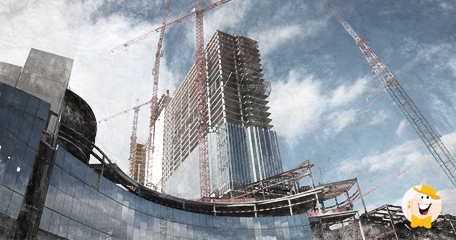
The History of Revel Atlantic City
I sometimes forget about the fact that different things that are regularly discussed on WoV are generally not talked about here, so let me take this opportunity to discuss a casino that opened and had absolutely no clue how to operate properly. That casino was the Revel Casino in Atlantic City.
The Revel Casino, under the leadership of CEO and Chairman of the Board, Kevin DeSanctis, should not have been managed in an entirely incompetent fashion. In fact, DeSanctis’ had a long-history of gambling business experience having worked in executive-level positions with Mirage Resorts, Kerzner International Limited, Trump and Penn National Gaming. If nothing else, one would think that DeSanctis would have some idea of what works and what doesn’t in the casino business.
For its part, the property was also a beauty to behold, though it did suffer from some design flaws. For one thing, the property decided to put the casino on the sixth floor which meant it could not be accessed without the use of an escalator or elevator, nor from the Atlantic City Boardwalk, nor from the hotel check-in. In fact, depending upon what room one stayed in at the establishment, some people had difficulty even figuring out where the casino was located at all.
That obstacle could have been overcome, however, as the most expensive (at the time) casino property to ever be built should have had no trouble drawing in visitors who just wanted to marvel at the spectacle that was the Revel Casino. Unfortunately, the many problems in the build-up to the casino’s eventual opening were merely a precursor to the fortunes it would experience upon finally opening its doors.
Among other things, during the construction, a tower crane collapsed due to high winds. As if that were not premonition enough, the following year, three of the construction workers on the property were struck by lightning by a flash storm with one being killed.
There were also some serious funding issues that needed to be overcome as Revel was unsuccessful in adequately securing all of the money that the project would need to be built to completion prior to the actual beginning of the construction on the property. While it was expected that the cost would be well over one billion dollars, the economic downturn of 2008 starting with America’s, “Great Recession,” was not expected at the time that construction had started and Morgan Stanley chose to absorb a loss by pulling completely out of the project rather than expose more money to it.
In total, the construction of the Revel would cost over 2.4 billion dollars and it was eventually sold in bankruptcy to Florida developer Glenn Straub for 82 million dollars, roughly three percent of the cost that it took to build the property. How could a property with such a high cost to build fail so thoroughly? For that, we will have to look at the many things that Revel did wrong.
Power Generation:
Getting electricity into the casino should be a fundamentally easy task, after all, power companies power places, so as long as the wiring is all there and up to spec, the power company rigs some lines to your establishment and flip a switch that flows power to you. Revel, a casino known for being unique (if nothing else) in every way decided they would be unique with respect to where they got their power, too.

For whatever reason, Revel decided to forego being connected to the power grid that powered all of the other Atlantic City casinos and decided to have a power plant built next door in a venture owned by a company called ACR Energy Partners. Interestingly enough, ACR Energy Partners only job was to power the Revel and the Revel, for its part, had no other source of power. The two entities were inexorably linked to one another. ACR Energy Partners also supplied the hot and cold water to Revel.
Because the Revel failed, ACR failed, due to the fact that their only job was to provide power to Revel. ACR eventually filed bankruptcy after unsuccessfully attempting to collect unpaid utility bills first from Revel, and then from Glenn Straub after Straub bought the property. Even that ended up being a mess as ACR resorted to such tactics as threatening Straub with no power unless Straub were to pay the utility bills that belonged to the former Revel. Naturally, Straub did not budge on his position that those bills were not his to pay, but he did buy ACR Energy Partners in bankruptcy for thirty million dollars.
It is difficult to say whether or not the Revel would have saved money in the long-run by way of their deal with ACR Energy Partners, but it may not have been a good idea for those who invested in ACR to invest into and form a company whose sole task is providing power to one unproven entity. It is for that reason that utility companies are generally very large and service a wide variety of individuals and businesses alike, risk mitigation. If you form a power plant with the goal of servicing just one entity, then you are hanging your hat on hoping that one entity is profitable, which Revel decidedly wasn’t.
Being Too Big to Meet Operating Costs:
Given the tremendous investment (from various sources) of 2.4 Billion dollars to build the property, it is no surprise that Revel opened its doors already in nearly insurmountable debt. However, that is not the first time that such a business had done that, or even the first time that an Atlantic City casino had done that.
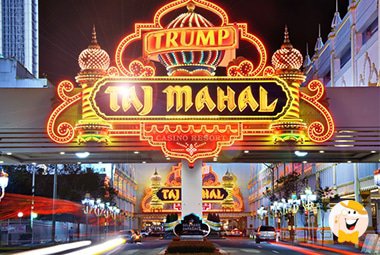
The Trump Taj Mahal was built in Atlantic City a few decades ago and was, at the time, the most expensive casino property erected in the entire world. In much the same fashion, the Trump Taj Mahal secured financing from multiple sources and occasionally construction on the project stalled due to a lack of funding. When the Taj Mahal first opened, it also faced what would have otherwise been insurmountable debt and engaged in what is known as a, “Packaged bankruptcy,” to reduce its debts and get extended repayment plans. Trump also did the same thing with the Trump Marina casino, which has since become the Golden Nugget.
However, any notion of paying down debts becomes nothing more than a dream when a company fails even to meet its operating expenses. In the case of the Revel, it was over two years after opening before the property even had a profitable month, and it took an unheard of promotion for that to happen. Basically, the property threw a Hail Mary hoping to survive, and while it helped a little bit, the light that it brought, taken as quickly as a candle blown out by a tornado.
The fact of the matter is the casino would have been crushed under the weight of its own debt, which it restructured in bankruptcy twice prior to finally calling it quits and liquidating. The simple fact of the matter is that there is no way to rework debt that enables you to pay it when you cannot even equal your operating costs. It is equivalent to trying to pay down credit card bills when you don’t have a job and are bringing in no income. The difference is, if you’re a company, you can get other companies to underwrite loans for you for a longer period of time.
However, even with the tremendous scope of the project and the casino, the Revel had to have been doing something wrong in order to fail to even meet operating expenses. As it turns out, they did a number of things wrong:
Alienating Everyone Except High Rollers:
Kevin DeSanctis made it clear three years prior to the project even being completed that he had no interest in attracting anyone other than high rollers to his property. He had this to say in an interview with GGB magazine:
“First, we have to recognize that the convenience customer is no longer a customer that Atlantic City can depend on. It was a great run, but it’s over.”
That was far from the most damning of DeSanctis statements about the property and to whom it would cater, but it did give an early indicator of the direction that the property was going to go. DeSanctis would later go on to point out that he had no interest in attracting the convenience gambler who intention was to come to the property just for a visit or a one night stay and that it was a destination property at which individuals should be spending an entire weekend, at a minimum.
DeSanctis, in highlighting the tremendous costs that went into the building of Revel, said that they could not open up and start comping rooms left and right as the property was facing an uphill debt battle and needed to make money off of the actual room rates. He took that notion one step further and announced that they would not be matching tier-statuses with comparable casinos, such as Borgata, and would generally only be offering free hotel rooms and other comps based on play.
While those sorts of notions seem reasonable enough, what one must keep in mind is that it has long been the operating procedure of most Atlantic City casinos to offer at least one free night to the highest cardholders of other casinos to get them to check them out. Even today, with only seven casinos remaining (and five casino companies) the casinos will generally tier-match the highest card levels of other casinos (particularly Tropicana, Borgata and Golden Nugget) and will comp at least one night to individuals who have the highest level cards at other casinos.
For Atlantic City, those things have been standard operating procedure for a long time. In the case of Kevin DeSanctis, it is not because Revel refused to do those things that was at issue, it is because he publicly announced that he was going to refuse to do those things prior to Revel even opening the doors. Again, the gamblers are not going to care about the beauty and splendor of your establishment if you don’t walk in the door.
For those of you who think I am exaggerating, just last year Borgata (easily the nicest casino in Atlantic City) offered me a small amount of Free Play, $20 in food comps, and a free Sunday-Thursday night stay and a tier match for matching my top-level card from the lowly Trump Taj Mahal. Even at the time, the Taj was set to be closing somewhat imminently, but Borgata (run by MGM and Boyd as a joint venture, at the time) recognized the importance of getting potential new gamblers to at least have the opportunity to check out the property.
100% Non-Smoking:
While the idea of a completely non-smoking premises sounds like a lovely concept to non-smokers, in practice, the Revel may have proved that it doesn’t actually work very well. The Revel announced well in advance that smoking would not be allowed on the property, and it cited the fact that there are many gambling jurisdictions that do not allow smoking and the casinos are successful there.
Unfortunately, what Revel did not take into consideration is that all of the casino properties that do not allow smoking are not voluntarily non-smoking establishments. For example, every casino in the State of Ohio is non-smoking, but that is not due to their belief that they are going to be more financially successful that way, but rather because there is an indoor smoking ban that applies to the entire state.
Even with that ban in place, several Ohio casinos have built something of a covered pavilion that is very technically outside, but is effectively the same as being inside. Inside of those pavillions, smoking is allowed. Essentially, other than the fact that table games are not offered in those pavillions, they are hardly any different from an indoor casino.
Even the casinos that do not offer the pavilions at least have direct access to the outdoors from the main gaming floor, in fact, Revel might be one of the first casinos ever with no such access! Ohio casinos such as JACK Cleveland do not have smoking pavilions with their own dedicated machines, but what they do have is direct access to the outdoors where people are free to smoke.
Another example of this is Mountaineer Casino in Chester, West Virginia. The county in which Mountaineer is located passed an indoor smoking ban after Mountaineer already had a long-standing policy of allowing smoking anywhere on the casino floor. As a result, the West Virginia casino and racetrack built a covered area that is only outdoors in the strictest sense of the term, but their outdoor venue has both slots and table games. In fact, it is probably about half of the size of the gaming floor in the indoor area!
Why would casinos go to such great lengths to cater to smokers even in states in which indoor smoking is illegal?
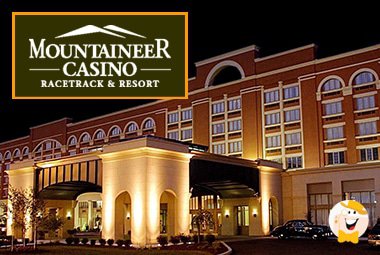
The answer is because smokers generate a ton of money for the casino, but as a fickle bunch, they lose interest in visiting the casino if it is not at least reasonably easy for them to smoke. As if it were not enough for Revel not to allow smoking in a market in which it is legal, they also made their casino floor wholly inconvenient to the outdoors. While they may have made a select few non-smokers happy, they simultaneously managed to alienate yet another market segment.
The Revel Had No Buffet:
In a move that is largely unprecedented for any casino, the Revel decided that it would do well not to have a buffet. You might recognize a casino buffet as a common staple of virtually every casino that you have ever heard of, with exception only to the absolute smallest casinos, in the United States. The buffet is a loss leader in the casino industry, but it represents something for the value-conscious gambler and a comp that has very little cost on a per player basis.
Terming the notion of buffets, “Mass feederies,” DeSanctis would have nothing to do with Revel having a buffet, despite the fact that his casino experience should have told him that virtually every casino of any significant size has one.
In fact, DeSanctis essentially spurned any low cost or value dining option as it was not consistent with his vision of what a Revel player should be. It was also for this reason that DeSanctis had little to no interest in offering any kind of food comps whatsoever to any players who had not substantially proved themselves with their play. What a buffet could have done is given the property a reasonably low cost comp to give players or to offer coupons on to encourage people to visit the property.
Also, just because a property has a buffet doesn’t necessarily mean that the buffet cannot be consistent with what the property wants to be. There are buffets in Las Vegas, for example, that have a retail cost of over $50 per person and offer fine items, such as caviar, that are not going to be found at your value casino buffet.
Too Little Too Late:
DeSanctis was eventually ousted in favor of another casino executive, but there was only a limited amount that anyone could do with a casino that had already turned off its potential customer base and that was also mired so deeply in debt. Needing a miracle, this new executive first made the decision to allow smoking in some areas of the casino floor and then threw the biggest marketing Hail Mary ever.
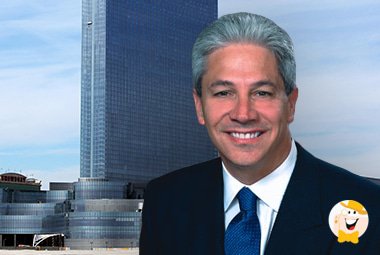
July of 2013 brought the Revel, “You Can’t Lose,” promotion which would enable players to lose up to $100,000 for the entire month and have it rebated to them in the form of free play. In addition to the fact that it represented the first major push for new players club members ever in the property’s history, it was also a huge positive expectation play for advantage players.
The way the rebate would work is that Revel would take a player’s machine losses for the entire month of July and then reimburse them in the form of free play over the following twenty weeks of an equal amount per week. Even that was not without controversy as some players sued the casino due to the fact that they thought the advertising verbiage sounded like they would get any losses refunded to them in cash.
The result was the first month that Revel operated at a profit (at least in relation to operating expenses) in the history of the property. Revel would enjoy 23.4 million in Live Gaming win for the month of July, 2013, but that still only put the property in sixth of the twelve Atlantic City properties. The property would drop to seventh (almost eighth) the following month and by July of the following year, Revel would only make 14.89 million in gambling revenue putting it in third to last.
The fact of the matter is that DeSanctis had already alienated virtually all of the players that Revel could have otherwise had, and many of them were not even going to attempt to take advantage of the loss rebate (even understanding the terms) simply because they did not know if the property would be open long enough for them to collect. Further, some players took advantage of the opportunity that the rebate presented and then never came back, except to wager the free play that came about as a result of the rebate.
Reinventing the Wheel:
The fact of the matter is that the biggest problem the Revel faced was the Revel itself and their attempts to reinvent the wheel. The arrogance of Kevin DeSanctis was clear every time he spoke of the property as well as the desired market for that property, and it was pretty clear that the property would have almost no shot at long-term survival under his stewardship.
In addition to being completely mired in debt, the Revel faced tremendous operating expenses as a result of its deal with ACR Energy Partners and the very size and scope of the establishment itself. The place siphoned money during the entire time it was being built and was essentially built as if to fail.
Beyond that, DeSanctis believed strongly in the notion that the Revel, in and of itself, would make Atlantic City a destination again that would be on par with Las Vegas as a result of that one casino combined with the Borgata. DeSanctis dreamed big dreams of not just NorthEasterners wanting to weekend at the beach being attracted to the property, but rather, of families coming from all over the country to enjoy stays of entire weeks. DeSanctis’ optimistic project, in his mind, would be all it would take to put Atlantic City back on the map as a major tourist destination and he would attract big spenders from the country and world over.
The problem is that an establishment can operate successfully within the confines of an existing market, but it cannot create an entirely new market from this air just by attempting to will it into being. Kevin DeSanctis, and by extension, The Revel, had no interest in the market that was already in Atlantic City and instead attempted to create a market from scratch based on nothing except illusions.
While the Revel property was both undoubtedly beautiful and insanely opulent, it could never be a destination unto itself without something to go with it. The beach at Atlantic City is far from the nicest (or cleanest) one available on the East Coast and the richest of the rich simply have little to no interest in Atlantic City as a destination. Furthermore, what few high-rollers that do go to Atlantic City were being treated very well by the Borgata, as opposed to the Revel who refused to comp them anything upfront without seeing play.
The fact of the matter is that Revel could have worked somewhere else, even with the insane debt that it found itself in prior to even opening its doors. However, the most likely location for a place like the Revel to work is Las Vegas rather than Atlantic City. Even though there are no entirely non-smoking casinos in Vegas (for very good reason) a new casino being built in Las Vegas would have a real chance of being successful as an entirely non-smoking establishment by advertising that fact heavily.
Of course, even if such an establishment were to do that, being non-smoking would be nothing more than an additional amenity of the property designed to appeal to a niche market. A non-smoking property, even in Las Vegas, would still want to somewhat attempt to appeal to value-conscious gamblers, have a buffet and not alienate convenience visitors prior to even opening their doors.
Finally, the only reason that such a casino might work in Las Vegas is because there is a potential market for such an establishment there. Because the presence of Revel itself would not be enough to draw many new visitors to Atlantic City who were not already going there, the fact of the matter is that Revel had to compete for the limited market that already existed.
It should have been clear to DeSanctis that the market was limited and becoming even moreso as casino revenues in NJ, in the years following the Great Recession, continued to plummet. In fact, 2016 is the first year since 2007 for A.C. to experience greater gaming win than it did in the year prior, and that’s mostly due to the online numbers. Live Gaming was down again on a year-over-year basis. The numbers for Live Gaming Casino Win (the state had no INternet Gaming in 2008) are still way down compared to 2008.
Conclusion:
Despite being a very nice property with the highest cost to build of any casino property ever, the Revel opened with several disadvantages, not least of which was its crushing debt load. The Revel, at a bare minimum, needed to come out of the gate operating at a profit to keep the creditors at bay, but it was unable to do so successfully.
While the Revel was also a victim of the Great Recession, as were four other Atlantic City casinos to close since 2014, the property was also responsible for many of its own misfortunes. Kevin DeSanctis managed the property in such a way as if the goal was to keep the average Atlantic City visitor out of the establishment. To a certain extent, it could be argued that is what the goal was, or at a minimum, that DeSanctis was simply neutral on whether or not he got the business of those people.
In the end, he did not get the business of those people and, perhaps unsurprisingly, was unable to attract money from a market that simply did not exist and the property found itself closed in short order.
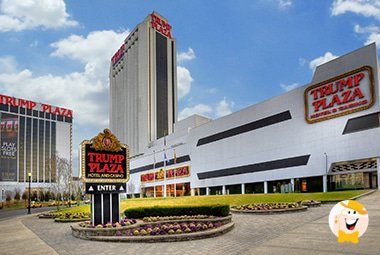
The most unfortunate aspect about the Revel is not that it closed, though, but rather that it ever opened in the first place. During the two years it was open it is not as though the Revel generated $0 in casino win, it generated positive casino win that hurt other Atlantic City casinos. While it is true that the Showboat closed its doors despite the fact that it was operating at a profit, casinos such as the Atlantic Club and Trump Plaza might have had a chance at weathering the storm had Revel not been siphoning off the revenues.
While some might argue that guests of those casinos did not go to Revel, I agree that is largely true, the existence of Revel might have had a trickle-up effect. Think about it, if the Revel pulls some of the bigger gamblers from casinos near its level, then those casinos have to market to gamblers that are on the lower end of the scale than those that they may have previously marketed to. In the meantime, the casinos from whom those customers are being siphoned have to market even more aggressively to lower rollers still which siphons out the guests from the smallest and weakest properties such as Trump Plaza and the Atlantic Club.
Given the market environment, even absent the Revel, I doubt if both Trump Plaza and Atlantic Club would have both survived, but I would be surprised if both of them had closed their doors.
But, somewhere, Kevin DeSanctis is still a very wealthy man.









